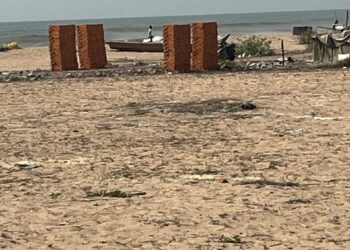By R.Swathi
It was a day of learning for the children gathered at the ‘Re-connecting with Mother Nature’ event held at Adyar Theosophical Society, conducted by Madras Theosophical Federation and Vasanta Youth Lodge, on Aug.27.
The event had fun events for many children, followed by informative talks by experts including the Greater Chennai Corporation Commissioner, Dr.J.Radhakrishnan, P.Natarajan – Founder of Namma Ooru Foundation and Prof.Indumathi Nambi – Professor in Civil Engineering Department at IIT Madras.
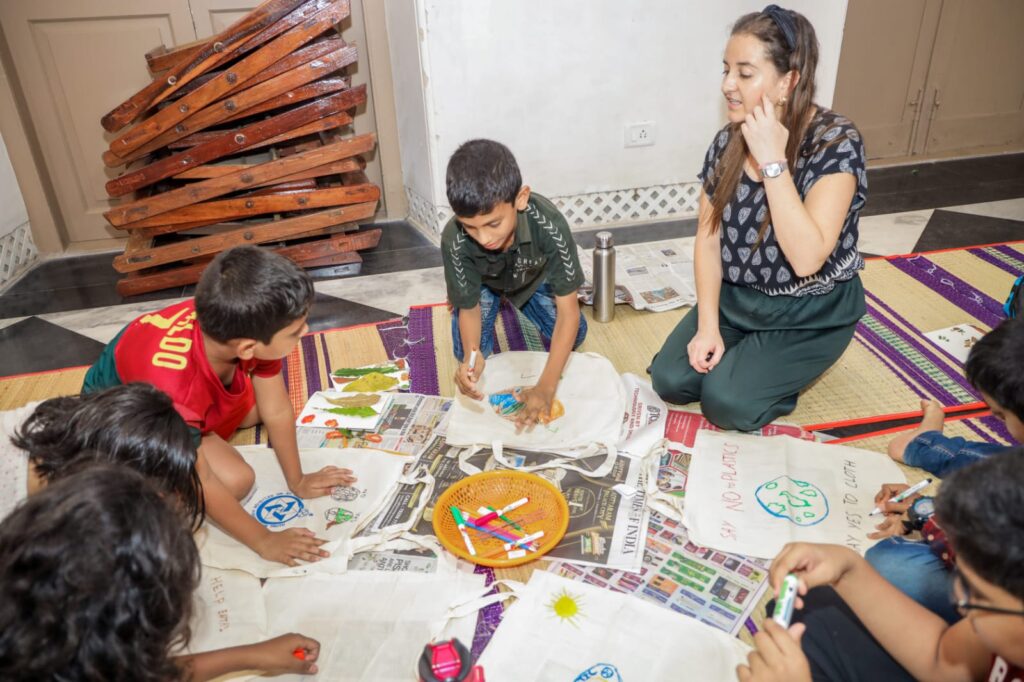
Nearly 50 children, many of them from Adyar Theosophical Academy (ATA), participated in the children’s workshop wherein they made posters and cloth bags on the theme of environment. The workshop was led by Upasika Maitreya, Yugesh and team.
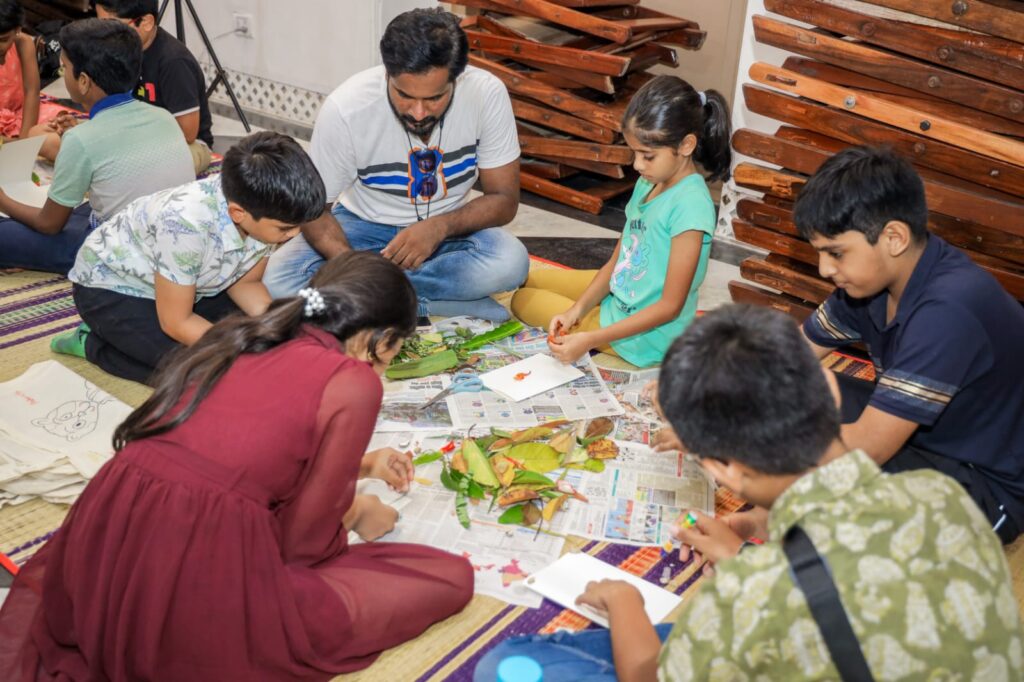
The workshop had a variety of stalls selling natural products – cleaning agents (phenols, dishwashers, shampoos etc.), mattresses and pillows made of silk cotton (ilavam panju), cloth wipes, khadi dresses, items made of coconut shells, reusable sanitary products and much more.
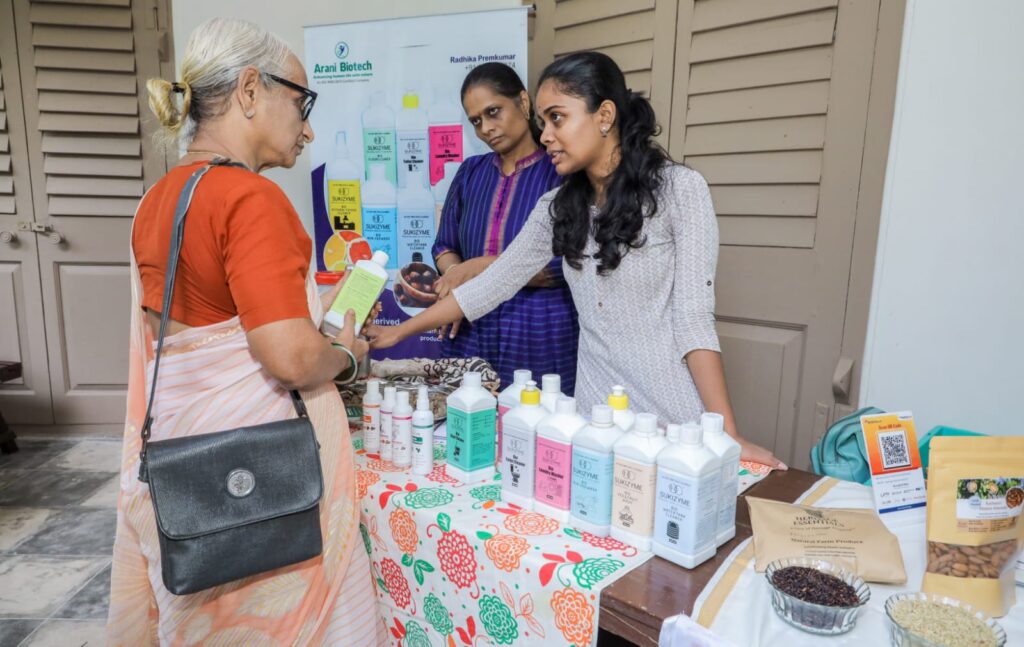
Dr.J.Radhakrishnan has been vocal about the issues caused by improper waste management, through various social media handles. This event provided an opportunity for highlighting the issues of solid waste management, and also present solutions, options and alternatives.
“The average waste generated has increased by 250 gms since the year 2000 (from 500 gms to 750 gms). With bio-mining of legacy waste, the mountain of garbage has been reduced to ground level, but there is 2 metres of garbage under the ground that needs to be cleared. At the dumpyard, one can get all sorts of items necessary for a newly married couple to start a family – sofa, bed; or start a sports facility with varieties of cricket bats and balls etc.,” quipped the Commissioner.
He further called for empathy with the people working at the two dumpyards – Perungudi and Kodingayur. “Those people are humans too. Though technology has improved (for waste management), and more awareness and alternatives have come up, the efforts are still miniscule,” he added.
“You all are gathered here at the beautiful campus of Theosophical Society; I request everyone to please visit the Perungudi dumpyard. Only then you will realise that this is not an idle threat. And suppose it catches fire, what will happen? Imagine the same for Kodungaiyur as well, which has more than double the waste. That is the kind of challenge with which we are meeting here,” he cautioned as he shared about the efforts of the Corporation with the audience.
While pointing out that though nearly 70% of the city segregates waste, he said, “When each person is generating around 750 gms of garbage a day, is this sustainable? Should we all not join together and implement better practices to reduce waste generation?” While sharing information about the types of banned plastics, he stated that cleaning the beach has been an unending task, “The beach beyond this campus is cleaned everyday, still the very next day another ton of garbage washes ashore.”
The Commissioner also spoke of a 2 pronged approach to tackle plastic: (a) action on the petrochemical industries manufacturing plastics; (b) make eco alternatives more attractive.
“If we keep blaming each other, who will bell the cat? Tackling the Nagapattinam Tsunami disaster was possible because the government, NGOs and individuals worked complementing, not competing with each other. Similarly, we can avoid further disasters caused by waste, if we all work together and take responsibility for our waste,” said Dr.Radhakrishnan, Pointing to the various eco stalls, he stated, “Alternative solutions are here itself for us to implement. Let us become innovators or early adopters of sustainable practices.”
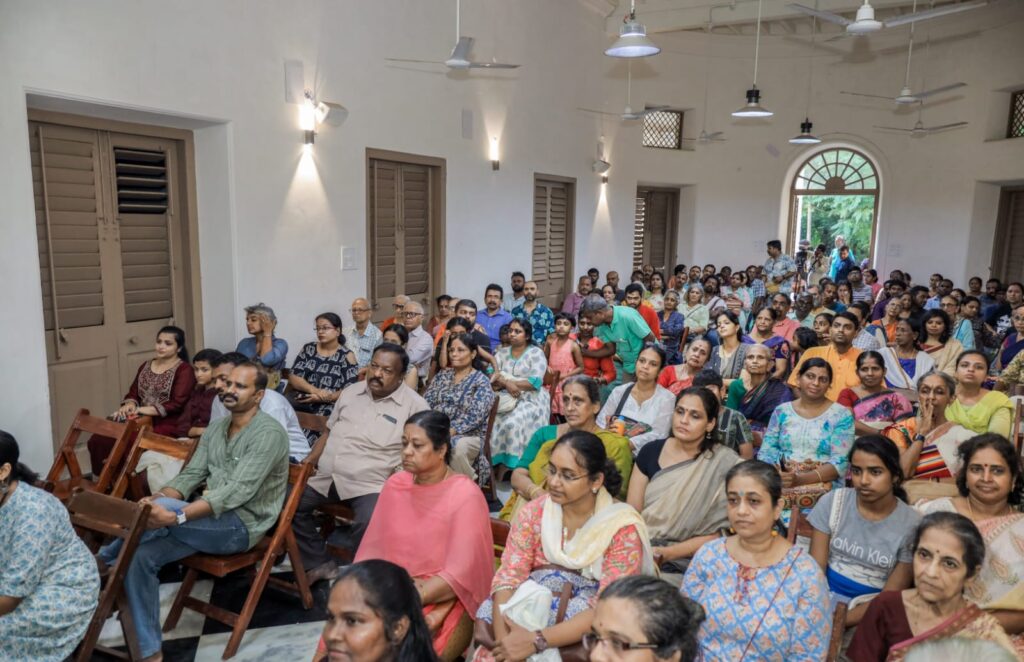
P.Natarajan explained to the audience about the effects of greenhouse gases and deforestation on our planet. He also explained about the greenhouse gases generated by unsegregated waste tied up in garbage bags, through anaerobic composting, “Imagine the amount of methane generated from our dumpyards. Pollution doesn’t only mean the smoke emitting from the chimneys of industries. This is too! We are directly contributing to climate change. To sort this issue, all we are asking you to do is sort and dispose differently – wet waste, recyclable waste, sanitary waste and e-waste. If we throw it all together, it is garbage; if it is thrown differently, it is a resource.”
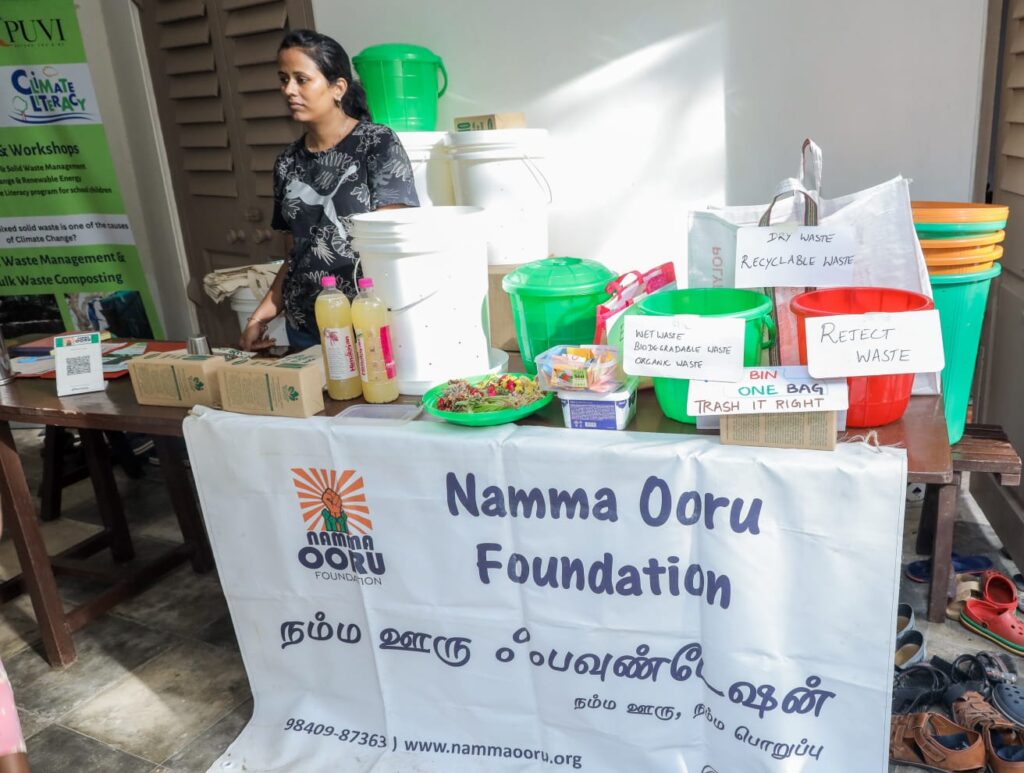
He explained the uses of segregating: wet waste converted to compost; recyclable waste is made into other useful products, e-waste components used to make new electronics and sanitary waste used to make paver blocks, “Many innovations have happened to make even used sanitary products into new items.”
Prof.Indumathi explained about the Earth Overshoot Day and that we had already used up the resource for the year and are currently borrowing resources from the future. Earth Overshoot Day marks the date when humanity’s demand for ecological resources and services in a given year exceeds what Earth can regenerate in that year. In 2023, it was on 2 August.
“Since Industrialisation, our dependence on non-renewable resources has increased exponentially and this is a very dangerous phenomenon. One must assess the carbon footprint of products while using it, including while constructing a building,” she added.
“Reusing refurbishing items can reduce the carbon footprint of articles. We must replace dumping of articles by the 7 R’s: Rethink and Redesign, Refuse, Reduce, Reuse, Repair / Refurbish, Recycle and Recover. With this, solid waste management would become resource management,” Prof.Indumathi explained.
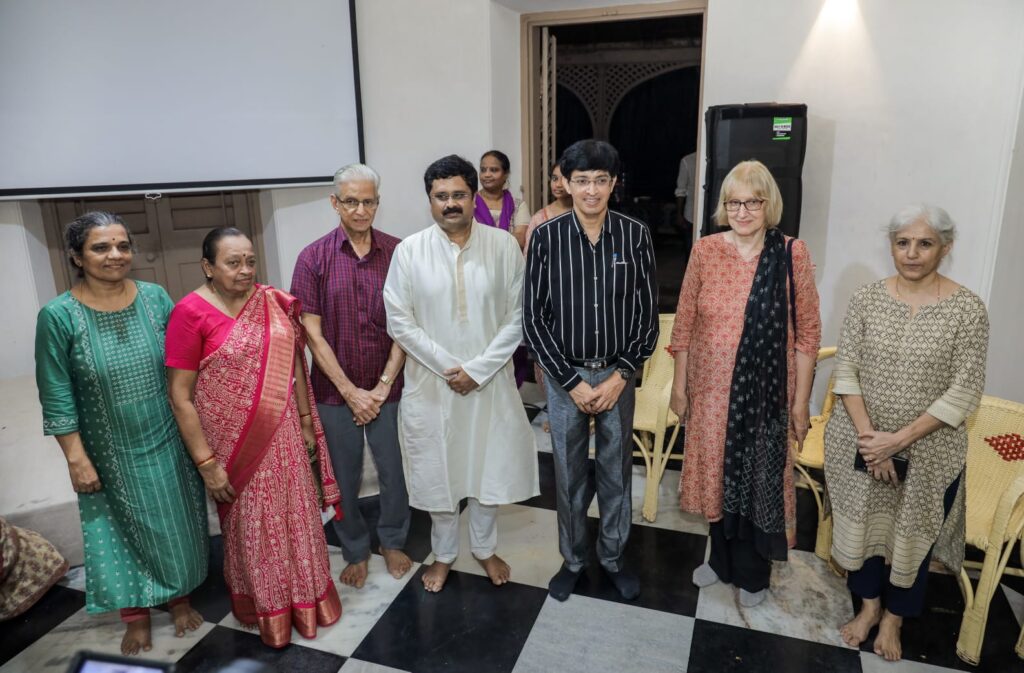
Vinay Kumar Patri, the President of the Madras Theosophical Federation conducted the event and stated that they had planned road shows to further the cause of waste management. He also thanked Janani Venkitesh and P.Saranya from Residents of Kasturba Nagar Association (ROKA) for their help in organising the stalls. Tim Boyd, President of Theosophical Society of Adyar, also spoke. H.Sripriya presented vote of thanks.










